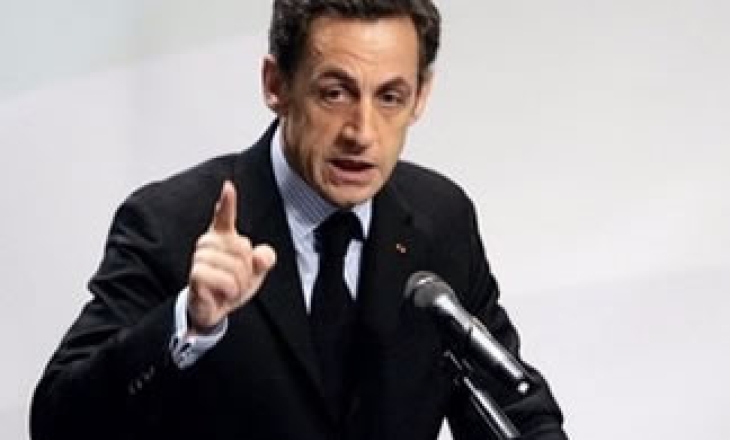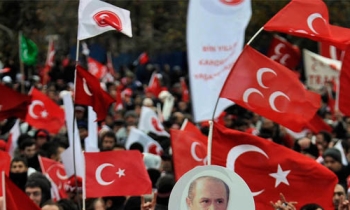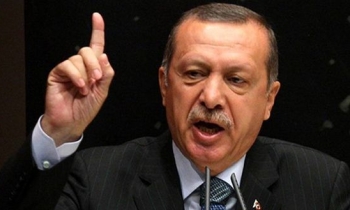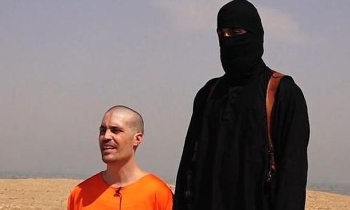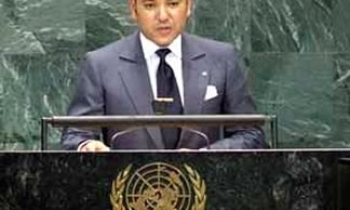The public outcry over the arrest and humiliation of the former managing editor of leftwing daily Libération, Vittorio de Filippis, may lead to the modification of libel laws in France. French President Nicolas Sarkozy, giving in to the simmering discontent, over the journalist’s arrest, has said that he wants to change the law and decriminalise defamation, thereby removing the threat of arrest and imprisonment.
“The president understands the emotions caused by the execution of a judicial warrant in a case of defamation," his office said in a statement. Sarkozy has already asked experts to review libel laws. The legislation might change next year. Sarkozy’s reaction has distanced him from Interior Minister Michele Alliot-Marie and Justice Minister Rachida Dati, who had defended the arrest of Filippis saying that the legal authorities had followed normal procedures.
The financial journalist was arrested on November 28 at the orders of a French judge investigating allegations of defamation involving comments posted by a reader on the website of the journalist's newspaper, Libération. Filippis was a senior editor at the paper in 2006 when the offending comment was posted and is therefore held responsible under the French law for the libel charges.
The defamation case was lodged by a French businessman who lost two other libel actions against him. The newspaper editors said they had been willing to meet Judge Muriel Josie to discuss the allegations and that there had been no need to haul in Filippis.
In an interview on December 1, Filippis said he was refused a telephone call to his lawyer, handcuffed on his way to the tribunal and strip-searched twice before being taken to see a judge and formally charged with libel against the founder of the French Internet provider Free, Xavier Niel, relating to articles by Renaud Lecadre, both in the paper and on its web version.
The “coercive methods” used against the journalist in connection with libel suit against the newspaper was described by Paris-based Reporters sans Frontières (RSF) as a sign of “deterioration in press freedom in France.”
“We are outraged by the unacceptable methods used against Vittorio de Filippis and their humiliating nature. Such a thing has never before been heard of in France. To treat a journalist like a criminal and resort to practices such as body searches is not only shocking but unworthy of French justice,” the press freedom group said.
The case has also highlighted the larger situation pertaining to freedom of speech in France. “The state of press freedom in France has been deteriorating in the past few years, as demonstrated by its 35th place [out of 173 countries] in our latest world press freedom index. France has the dubious distinction of holding the European record for the number of summonses, investigations and custody orders against journalists,” RSF said.
In October 2008, Sarkozy’s proposals at the French National Discussion on Press raised concerns over media’s independence. The proposals could increase media’s ownership concentration and decrease journalists’ rights over their own work. Sarkozy had asked the States General to “learn about the media sector in countries that can be compared” to France. The European Federation of Journalists (EFJ), the European group of the International Federation of Journalists (IFJ), said it was astonished by Sarkozy’s decision to give all leadership roles in the national discussion to the press owners.
Sarkozy, in June this year, had also suggested that the president of France Televisions should be appointed by the exectutive branch upon the agreement of the Broadcasting Higher Council (Conseil Superieur de I’Audiovisuel - CSA) and subject to the approval of a qualified majority of parliamentarians. The president of France Televisions was earlier appointed directly by CSA. “President Sarkozy’s proposals, if implemented, will threaten the independence of the French Public Service Broadcaster and and the free flow of ideas in the country,” said Agnes Callamard, Executive Director ARTICLE 19, at the time.
Sarkozy’s comments about French media biasness “shocked” EFJ in May as well. Sarkozy had then said that media outlets including Agence France-Presse (AFP), Le Parisien and I’Express, were biased because they did not "report enough" on a verdict by the Court of Rennes finding Segolene Royal, Sarkozy’s opponent in last years’ election, guilty of improperly paying her assistants. EFJ Chair Arne Koing protested, “As a candidate, Sarkozy assured us that he seems to have forgotten these principles as a president and he doesn’t hesitate to cry ‘censorship’ when media do not report the news to his liking. We are outraged by his behaviour.”
On February 7, Sarkozy had filed a suit against a website for “falsification and use and procurement of false" documents. The suit was filed on Sarkozy’s behalf by lawyer Thierry Herzog over a report on the Nouvel Observateur newspaper’s website (http://www.nouvelobs.com) titled 'The obsession with Cecila'. It claimed that, eight days before marrying former model Carla Bruni, Sarkozy sent his former wife an SMS message saying, “If you come back, I’ll call if off.” The charges brought by Sarkozy’s lawyer under article 441 of the criminal code carried a maximum sentence of three years in prison and a fine of 45,000 euros. The criminal suit was unprecedented. “No French president had sued the news media for the past 30 years at least," RSF said.

